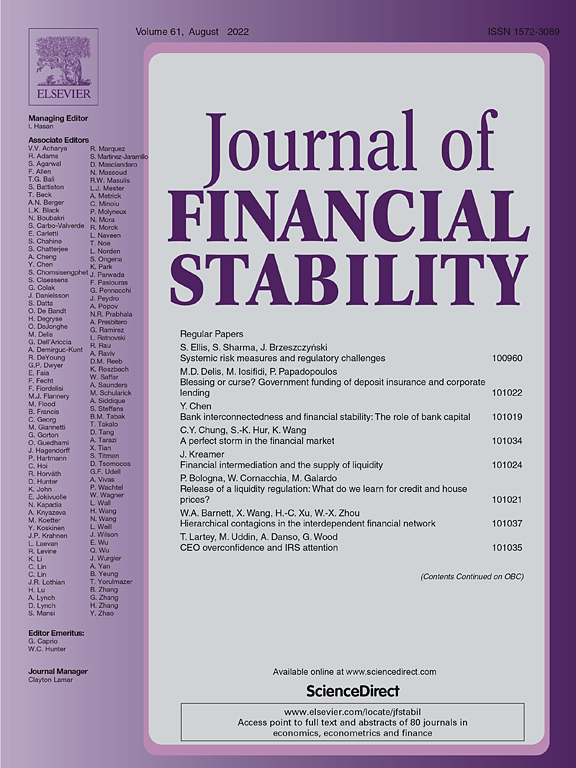
Lo más reciente
Banks in emerging market economies rely on cross-border interbank lending to financing firms in the real sector. By matching cross-border bank-to-bank loan level data with domestic bank-to-firm loan level data, and firm-level data, this paper shows that the sudden yield reversal observed during the 2013 Fed taper tantrum resulted in a substantial contraction of cross-border credit to banks in emerging markets that significantly reduced the supply of domestic corporate credit and increased loan rates. Results show that firms with an ex-ante high concentration of credit granted by exposed banks in the cross-border interbank lending market exhibited low bank credit and substantial real effects, including a decline in imports and exports. The results indicate that cross-border intra-group lending and domestic unsecured interbank funding contribute to smoothing the effects of sudden yield reversals on the financial intermediation. Overall, the results are consistent with the notion that the level of banks’ exposition in international credit markets contributes to global financial conditions’ transmission to the economy.
